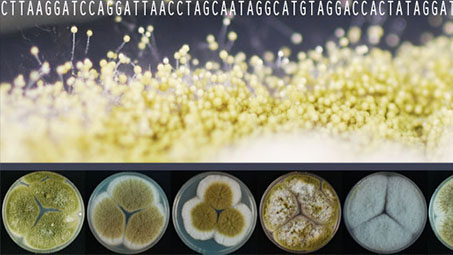Fungal Chemodiversity

The group studies fungal diversity, especially in the ubiquitous species in the genera Aspergillus, Penicillium, Talaromyces and Byssochlamys.
We want to understand why fungal species are such fundamental units of nature. By an increased understanding of fungal biology, including ecology, physiology, phylogeny, and chemical differentiation we want to suggest which species to use for green and white chemistry - solutions for a world with increasing population, especially for the use of fungal species in industrial and food mycotechnology, mycodegradation, mycotransformations, mycofuels, mycomining, and for suggesting preventive measures against mycodeterioration and mycotoxin formation.
The group has a strong basis in taxonomy, chemotaxonomy, phylogeny, ecology and extrolites. Fungal extrolites include exometabolites (= secondary metabolites), exoenzymes, and other outwards directed bioactive proteins and special emphasis is given to exometabolites and their analysis by liquid chromatographic methods coupled with UV and MS detection (exometabolomics).
Biosynthesis, genetics and analysis of exometabolites is studied in intense collaboration with other groups at DTU Bioengineering. We also collaborate on genome sequencing of the species studied in order to understand the functionality of these biodiverse fungi.


